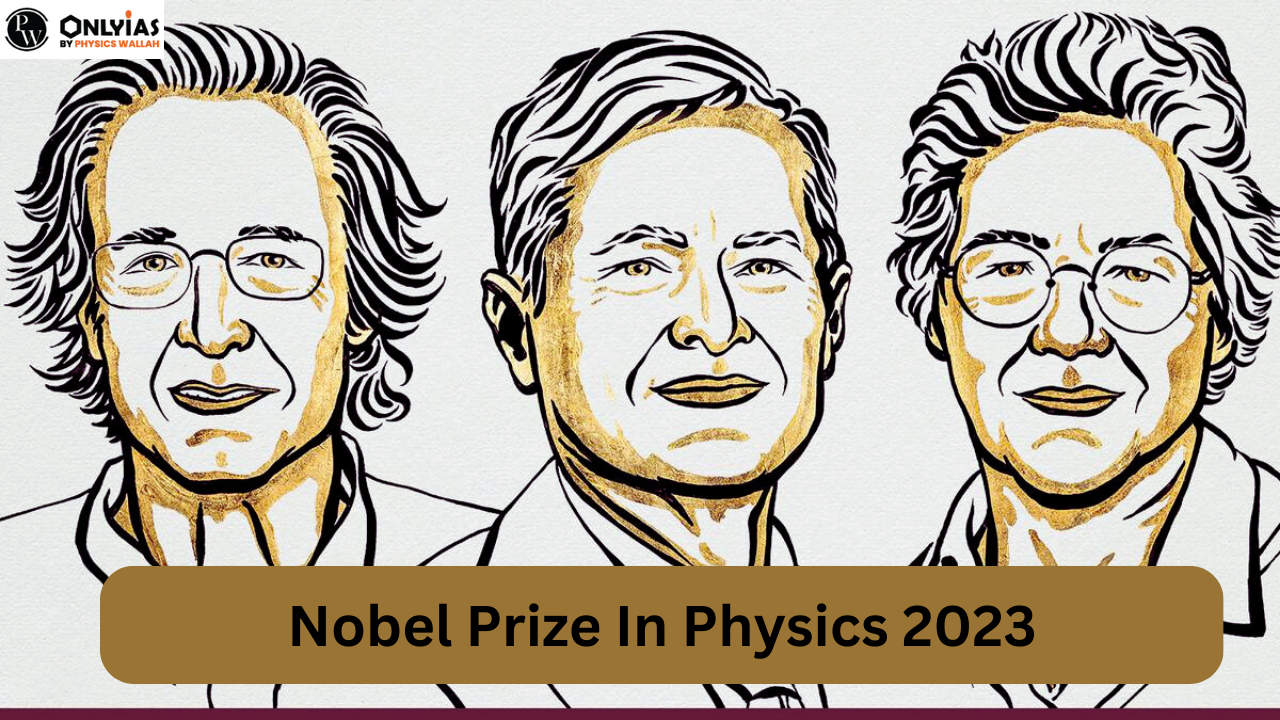Nobel Prize in Physics for the year 2023 has been awarded to Pierre Agostini, Ferenc Krausz, and Anne L’Huillier.

Nobel Prize in Physics 2023 has been awarded to Pierre Agostini, Ferenc Krausz, and Anne L’Huillier for their pioneering work in experimental methods that generate attosecond pulses of light. These attosecond pulses have revolutionized our ability to explore the intricate world of electrons within atoms and molecules, providing humanity with innovative tools for scientific discovery.
In their groundbreaking experiments, Pierre Agostini, Ferenc Krausz, and Anne L’Huillier have unlocked the capability to create extremely short pulses of light, measured in attoseconds. To put this into perspective, an attosecond is a unit of time so astonishingly brief that there are as many attoseconds in one second as there have been seconds since the birth of the universe.
In the domain of electron dynamics, where changes occur within mere tenths of an attosecond, these attosecond pulses are indispensable for capturing and comprehending rapid processes. Just as fast-moving events blend seamlessly when perceived by human senses, like frames in a film creating the illusion of continuous motion, these attosecond pulses allow scientists to visualize and dissect the swift and interconnected actions of electrons.
The Nobel Laureates’ pioneering experiments have yielded pulses of light so short that they are measured in attoseconds, proving that these pulses can serve as a remarkable tool for generating images of processes occurring deep within the intricate realms of atoms and molecules. Their contributions have opened new frontiers in the exploration of the subatomic world, advancing our understanding of the fundamental behavior of matter and promising groundbreaking applications in fields ranging from chemistry to quantum physics.
Also Read:
An attosecond is an extraordinary unit of time, equivalent to one quintillionth of a second, which can be expressed as 10^(-18) seconds. In more tangible terms, one attosecond equals 0.000000000000000001 second, highlighting the astonishing brevity of this temporal measure.
Also Read:
Pierre Agostini (The Ohio State University, Columbus, USA)
Pierre Agostini obtained his Ph.D. in 1968 from Aix-Marseille University, France. He serves as a Professor at The Ohio State University, Columbus, USA.
Ferenc Krausz (Max Planck Institute of Quantum Optics, Garching and Ludwig-Maximilians-Universität München, Germany)
Ferenc Krausz, born in 1962 in Mór, Hungary, earned his Ph.D. in 1991 from Vienna University of Technology, Austria. He currently holds the position of Director at the Max Planck Institute of Quantum Optics in Garching and is a Professor at Ludwig-Maximilians-Universität München, Germany.
Anne L’Huillier (Lund University, Sweden)
Anne L’Huillier, born in 1958 in Paris, France, completed her Ph.D. in 1986 from the University Pierre and Marie Curie in Paris, France. She is a Professor at Lund University, Sweden.
Also Read:
Nobel Prize in Physics has been awarded 116 times to 222 Nobel Prize laureates spanning the years from 1901 to 2022. An interesting fact is that John Bardeen is the sole laureate who has been honored with the Nobel Prize in Physics twice, receiving the prestigious award in both 1956 and 1972. This translates to a total of 221 individuals who have been recognized with the Nobel Prize in Physics.
Physics holds a special place in the history of the Nobel Prizes. Alfred Nobel, in his will from 1895, mentioned physics as the first prize area. This underscores the significant role he attributed to physics in the realm of scientific achievement. Notably, Alfred Nobel’s own research contributions were closely tied to the field of physics.
The Nobel Prize in Physics is bestowed by the Royal Swedish Academy of Sciences, headquartered in Stockholm, Sweden. It remains a highly regarded and celebrated honor in the world of science, recognizing the outstanding contributions of individuals to the advancement of our understanding of the fundamental laws of the universe.
| Must Read | |
| NCERT Notes For UPSC | UPSC Daily Current Affairs |
| UPSC Blogs | UPSC Daily Editorials |
| Daily Current Affairs Quiz | Daily Main Answer Writing |
| UPSC Mains Previous Year Papers | UPSC Test Series 2024 |
Attosecond pulses of light are extremely short bursts of light lasting for quintillionths of a second (10^(-18) seconds). They are significant because they allow scientists to observe and study rapid electron dynamics in atoms and molecules, providing invaluable insights into fundamental processes.
Attosecond pulses of light serve as a powerful tool for studying electron behavior at the atomic and molecular levels. They enable scientists to capture and analyze ultrafast processes, enhancing our understanding of matter's fundamental properties and enabling advances in various scientific fields.
The Nobel Prize in Physics is awarded by the Royal Swedish Academy of Sciences. The award ceremony takes place annually in Stockholm, Sweden, along with other Nobel Prizes.
In 2023, the Nobel Prize in Physics was awarded to scientists Pierre Agostini, Ferenc Krausz, and Anne L'Huillier for their groundbreaking work in creating ultra-short pulses of light. These pulses have the remarkable ability to provide a snapshot of rapid changes occurring within atoms, offering the potential for significant advancements in disease detection and various scientific applications.
The Nobel Prize in Physics has a rich history, having been awarded 116 times to 222 Nobel Prize laureates from 1901 to 2022. Notably, John Bardeen holds the unique distinction of being the sole laureate to receive the Nobel Prize in Physics twice, earning this prestigious honor in both 1956 and 1972. His exceptional contributions to the field underscore the significance of the Nobel Prize in recognizing outstanding achievements in the realm of physics.
<div class="new-fform">
</div>